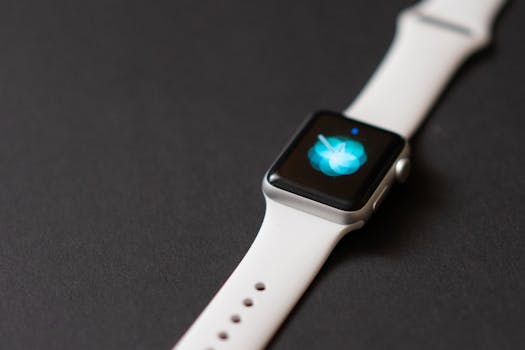Wearables and Health Tech: Revolutionizing Health and Wellness

Wearables and Health Tech: Revolutionizing Self-Care and Preventive Medicine
This article explores the burgeoning field of wearable technology and health tech, examining its impact on self-care, preventative medicine, and overall well-being. From fitness trackers to sophisticated medical devices, wearables are transforming how we interact with our health and manage our wellness.
The Rise of Wearable Technology
The popularity of wearable technology has exploded in recent years. Driven by advancements in sensor technology, miniaturization, and battery life, wearables are increasingly sophisticated and capable of monitoring a wider range of health parameters.
Key trends in wearable technology development include:
- Expanding Health Monitoring Capabilities: Modern wearables can track not only basic metrics like steps and heart rate but also sleep patterns, stress levels, skin temperature, and even blood oxygen saturation. Some devices now feature advanced algorithms that can analyze these data points to provide personalized insights and recommendations.
- Integration with Mobile Apps: Wearable devices are often integrated with companion mobile apps, allowing users to store, visualize, and analyze their data. These apps provide a platform for personalized health management and can connect users with health professionals and support communities.
- Personalized Health Recommendations: Wearable data can be analyzed to provide tailored advice on diet, exercise, sleep hygiene, and stress management. This personalization is a critical factor in motivating users to maintain healthy habits.
- Emergence of Specialized Devices: Specific wearables are emerging that focus on specialized health concerns, such as glucose monitoring for diabetes management or blood pressure tracking. These devices aim to make managing chronic conditions more accessible and convenient.
Impact on Self-Care and Preventive Medicine
Wearables empower individuals to take an active role in their health journey. By providing real-time data, they can motivate users to stay active, improve their sleep, and adopt healthier lifestyle choices. This proactive approach can translate into significant benefits in preventing diseases and promoting overall well-being.
Specific benefits include:
- Improved Awareness of Health Patterns: Continuous monitoring allows users to identify patterns in their health data that might otherwise go unnoticed. For example, a wearable can detect subtle changes in sleep patterns that could indicate underlying health issues.
- Early Disease Detection Potential: Some wearables are capable of detecting subtle physiological changes that might precede the onset of certain diseases. While not a substitute for traditional medical screenings, they offer valuable early warning signs.
- Enhanced Engagement in Treatment Plans: Wearable data can help individuals and health professionals monitor the efficacy of treatment plans. This data-driven approach can lead to more personalized and effective interventions.
- Promoting Healthy Lifestyle Choices: By providing real-time feedback and personalized insights, wearables can empower individuals to make positive changes in their lifestyle. This improved engagement is a key factor in long-term health outcomes.
Challenges and Considerations
Despite the many benefits, wearable technology faces challenges. Data privacy, security, and accuracy are significant concerns. Also, the potential for over-reliance on technology and the importance of integrating wearable data into existing healthcare systems remain important areas of consideration.
Important considerations include:
- Data Privacy and Security: Protecting personal health information collected by wearables is paramount. Strong encryption and secure data storage are crucial.
- Accuracy of Measurements: The accuracy and reliability of wearable sensor data need to be validated and continuously improved.
- Integration with Existing Healthcare Systems: Seamless integration of wearable data into electronic health records (EHRs) is essential to allow for comprehensive health management.
- Accessibility and Affordability: Ensuring equitable access to wearable technology is critical to avoid exacerbating existing health disparities.
The Future of Wearables and Health Tech
The field of wearable technology is constantly evolving. Future advancements are likely to involve even more sophisticated sensors, AI-powered analytics, and more seamless integration with healthcare systems. As the technology matures, we can anticipate an even greater impact on preventive medicine and self-care. Wearable technology holds the promise of revolutionizing healthcare, empowering individuals, and improving public health outcomes.
Post a Comment for "Wearables and Health Tech: Revolutionizing Health and Wellness"